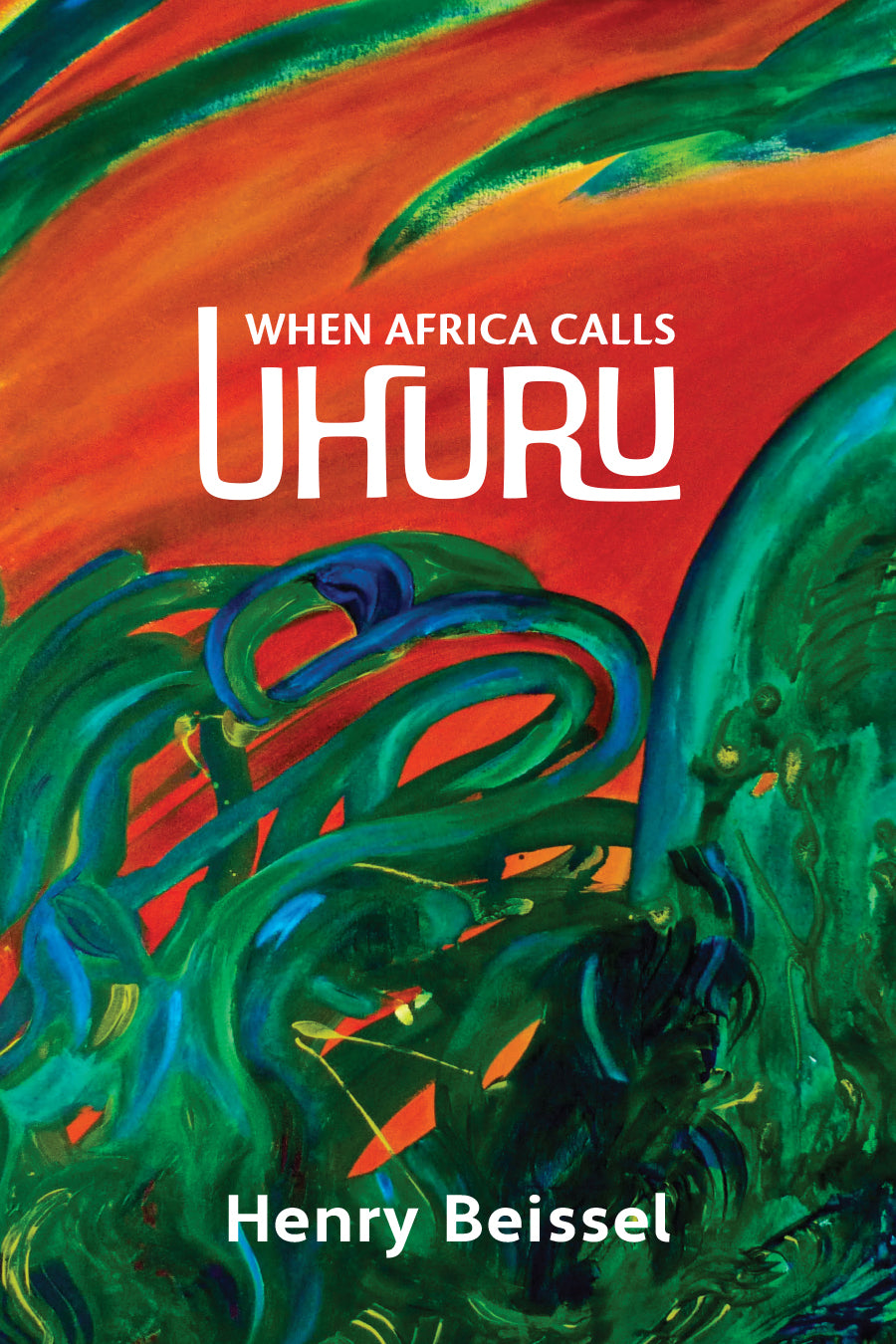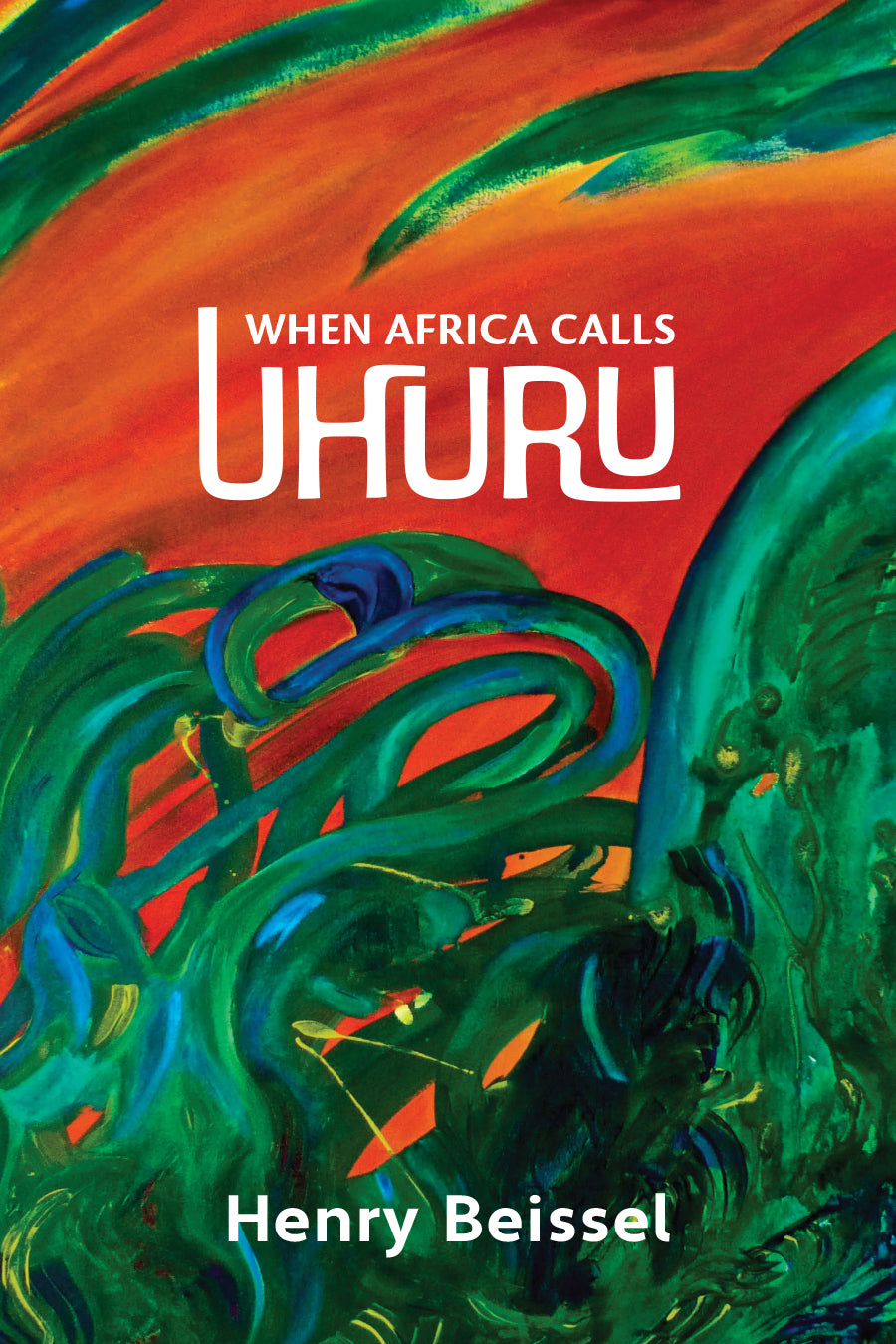When Africa Calls Uhuru
When Africa Calls Uhuru
By Henry Beissel
When Africa Calls Uhuru is a dramatic poem in search of what it means to be human. Henry Beissel takes the reader to the Rift Valley in Kenya where it is believed the evolution of Homo sapiens largely took place. The narrative unfolds in a dialogue between nature, science and history, three voices that evoke the fauna and flora of Africa and conjure up the history of its colonization. Ultimately, the poem celebrates today’s liberation of the ‘dark’ continent, arguing that since all humanity was born there, all people are brothers and sisters, whatever the colour of their skin. “Dance, my beloved / Africa,” the poet rejoices, “you are free / to choose freedom now!”
Details
Details
(Essential Poets Series)
9781771837866
100 pages |
Couldn't load pickup availability
Reviews
Reviews
In a sense, to read When Africa Calls Uhuru is to eavesdrop upon a triangular and pointed conversation, one in which Africa is itself the Talking Book or Talking Drum of humanity that we sound and overhear as nature, science, and history (or the political) interrupt and talk over each other ... This book runs the gauntlet, goes the distance, crosses the finish line, and carries home the trophy.
George Elliott Clarke
I have now read [When Africa Calls Uhuru] through twice. I am able to sense the intensity and indeed the centrality of the message of the poem to modern day reflections on recent world history... It is a special poem to me in the sense that I may have witnessed certain aspects of its inspiring forces. And so I am aware that too this could be a disadvantage to me because I may be looking for the inspiration behind the poem only in physical terms; your presence, for the first time, in the Great Rift Valley with all its natural beauty. I intend to read it again and again because it is not only an explosive, highly creative poetic statement but an invaluable package of rich and varied historical knowledge. I have seen Kenya's wildlife on numerous occasions. But let me admit to you that on no occasion have I seen the animals as vividly as I see them in your poem.
Dr. Francis Imbuga, novelist/playwright, Kenya
Yesterday I spend most of the day reading and rereading your Africa canto. It is very good indeed, perhaps among your best. You are one of the few poets who capture the mood which is created by our exploded knowledge about the universe and ourselves. It is all so new – a totally different kind of consciousness; a century of knowledge has done little to change old thought-habits; your poetry points in a new direction.
Dr. Wolfgang Bottenberg, composer, Cornwall
I have just ...read your wonderful song to Africa and all of us. Has it been recorded? It should be – I would love to do that. The CBC should be very amenable. No? It is such a deeply emotional and vibrant song it should be heard and reach as wide an audience as possible!
Alan Scarfe, actor/director, writer, Vancouver
I have now read [the African elegy] several times and it grows, as all good poems should, with each reading. I very much liked your device of your being in Ayorama on a hot and humid summer day and thinking back of your time in Africa; that really works well. I liked too your continued contrasts – the Louis Armstrong/Idi Amin passage in particular... The elegy is a most impressive work and one you must have laboured on long and hard. Congratulations!
Desmond Scott, actor/director/sculptor, Toronto
You continue to astonish me... Still going your way and damn the torpedoes. The big opus you're working on (of which When Africa...is a part) challenges Whitman. America was enough for him. You’re out to net the whole world through all time. But it’s the stance for what’s needed now that time and space (and humanity) have become seamless. We have to gobble it all up in order to find our individual place in it. It’s a tough task you’ve set yourself, swinging past pop thought and journalism and on through science to the arts of wonder, wisdom and spirit. But that’s us now. The former neatness of expression has been found wanting. Chaotic, uncertain leaps are the new garden tools, are the new imagery of understanding. The poet has to draw from madly disparate sources to stitch together meaning-from-experience-and-insight for the twenty-first century. You’re well on your way. Your outrage and kindliness come together as a great force, and inspire us to breathe humane hopes as we leap along to your cadences and vision.
Len Peterson, playwright
...as I have just read Uhuru in one sitting the brevity of my note is somehow appropriate as I really am speechless. I have been steeped in first questions, wonderment and pain, and as I struggle for words of appreciation to send, phrases such as "who knew how to carve//wood into ecstasies...", "Naming the world is like bringing//the lights up on stage. Things appear//to be where and what they are." "A languaged beast//languishes no more." And many other beauties keep coursing through my mind making my project impossible. I know exactly how many years of thinking, studying, observing, meditating and connecting lies behind this wonderful thing [Beissel has] turned into such " ease".
Per Brask, writer/director, Winnipeg
The African elegy is like a massive synthesis of [Beissel's] personal, lyrical instinct, and moral or humane impulse to find earnest truths in the womb of time. Of course, all [his] various elegies can be read as a massive kaleidoscope of shadows "densing" into a matrix of struggle and liberation. And I always discover something new in [his] rich diction. Congratulations!
Dr. Keith Garebian, critic/scholar/ writer, Toronto
Learn More
Learn More
Awards
Awards

About the author
Henry Beissel is a poet, playwright, fiction writer, translator and editor with well over 30 books published. Among his 23 collections of poetry are his epic Seasons of Blood and the lyrical Stones to Harvest. As a playwright he came to international fame with Inuk and the Sun, which premiered at the Stratford Festival in 1982 and has been translated into many languages and produced internationally. His most recent books of poetry include Fugitive Horizons, which engages the world of modern science; his celebration of our land and its people in Cantos North, which was republished in a bilingual English/French edition for the 150th anniversary of Canada. Henry is Distinguished Emeritus Professor at Concordia University (Montreal) where he taught English Literature for thirty years and founded a flourishing Creative Writing Program. He now lives with his wife, Arlette Francière, the painter and literary translator, in Ottawa.

